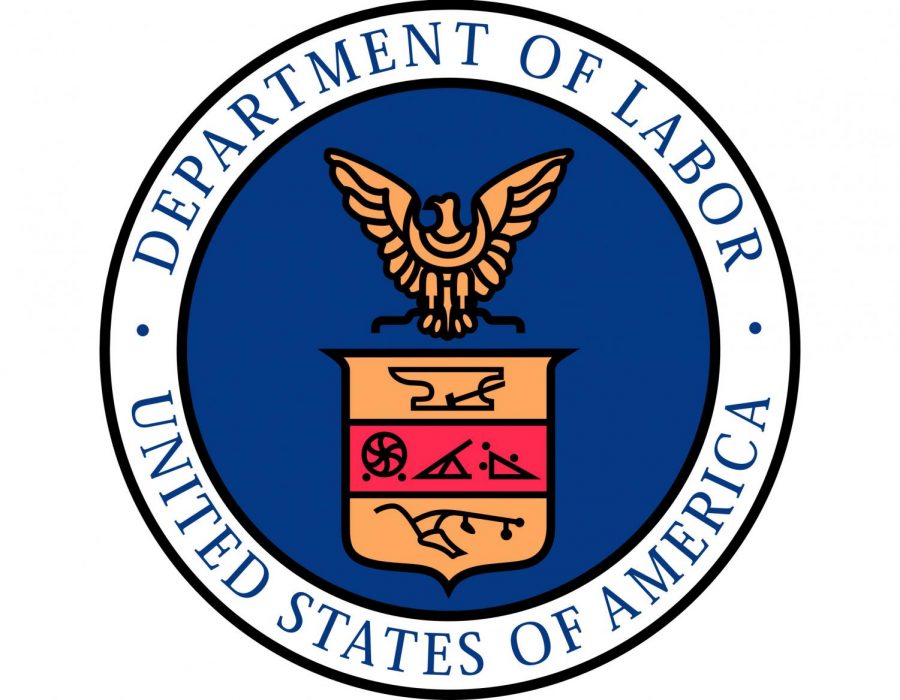FMLA not “student-first” at UNI
COURTESY PHOTO/Department of Labor
The Department of Labor is responsible for the federal execution of the Family and Medical Leave Act of 1993.
Jan 22, 2018
During the spring 2017 semester, United Faculty, the labor union for UNI’s faculty, formed a committee to review the current Family and Medical Leave Act (FMLA) policy at UNI, which includes when faculty take leave for family and medical reasons, including childbirth and adoption.
“We do not expect [the committee] will complete its work until sometime during the spring semester,” said John Vallentine, head of the committee and associate provost for faculty. “Upon the completion of its work, the committee will be making recommendations to the Faculty Handbook Committee for its consideration of any potential changes or additions to the Faculty Handbook.”
In 1993, Congress passed the FMLA, which guarantees that certain employees have up to 12 weeks of unpaid and job-protected leave per year, according to the Department of Labor. The University of Northern Iowa’s FMLA Leave policy reiterates a compliance with the federal act. According to the policy, “the University provides eligible employees up to 12 weeks of unpaid, job protected leave annually […] leaves must be arranged with the employee’s supervisor, who will collaborate with Human Resource Services.”
According to Carissa Froyum, associate professor of sociology, anthropology and criminology, there are many unaddressed issues in the current policy. Because the policy states that leaves must be arranged with the employee’s supervisor, faculty have different experiences, as they are left to individually negotiate with their department heads.
Froyum had three children under two different deans and three different department heads.
“For my first pregnancy, I was required to ask my colleagues to cover my classes,” Froyum said. “As a new faculty member, I didn’t want to ask my colleagues to do extra work so that I could recover.”
Emily, a UNI faculty member who wished to remain anonymous for fear of termination or other disciplinary action, said, “For my first child, my department head repeatedly told me, ‘We will figure it out,’ and they would not say more than that. I didn’t know if I would have two more weeks of leave or if I would be called back to class the next day. Not knowing how long your leave adds undue stress.”
“My baby was due at the end of the semester,” said Abigail, a contingent faculty member who wished to remain anonymous. “I had to do a lot more work to prepare the substitute. I was emailing students and the sub during my leave. I came back during finals to grade the presentations. I worked throughout my leave because I had to help my students and substitute. It was unfair to my students to have a stranger come in and grade them.”
Although many faculty women receive six weeks of paid leave for a birth of a child and up to 12 weeks of unpaid, the three faculty women said that it is not enough.
“I had a child with severe medical conditions and we didn’t have a diagnosis for months,” Froyum said. “I was stressed and was not sleeping. I felt like I couldn’t take time off during the worst time in my life.”
“I was told I had six weeks from the time my baby was born to come back or I would have to take unpaid leave,” Abigail said. “Because the birth of my child bumped up against winter break, I came back when my child was just over six weeks old. Contingent faculty make significantly less than tenure-track professors, and I could not afford to take unpaid leave. I started that spring semester exhausted, sore and uncomfortable — my body was still recovering, and I was a mother to two very small children. I was struggling to survive. My only option was to adapt my courses because I couldn’t perform at my normal standard. My struggling throughout the semester was not effective learning conditions for the students and not healthy for my physical or mental health. Professors and instructors may have better leave policies than other professions, but UNI’s policy is still hurting faculty and, in turn, students.”
According to Froyum, UNI’s policy is not student-first.
“UNI’s faculty working conditions are student learning conditions,” Froyum said. “The University should move away from a policy that is interruptive and stressful for students.”
All three women agreed that student evaluations are another problem surrounding leave because they received negative evaluations during the semester of pregnancy and the semester after the birth.
“Some students don’t understand and harshly review in a time with great stress,” Emily said. “There was never an option to skip evaluations.”
Froyum suggested offering an automatic one-year addition to tenure clocks and to not have evaluations for either semester.
Emily brought up another unaddressed issue in the current FMLA policy and that is sharing medical information like miscarriages to supervisors.
“I shouldn’t have to give my medical conditions to my boss in order to get time off for miscarrying,” Froyum said. “I also miscarried my first year, and I was never presented with any leave options. In fact, my supervisor required me to attend meetings while I was miscarrying, even though he knew I was miscarrying.”
The FMLA committee is scheduled to discuss all the issues and propose recommended changes to the Faculty Handbook Committee this semester.














